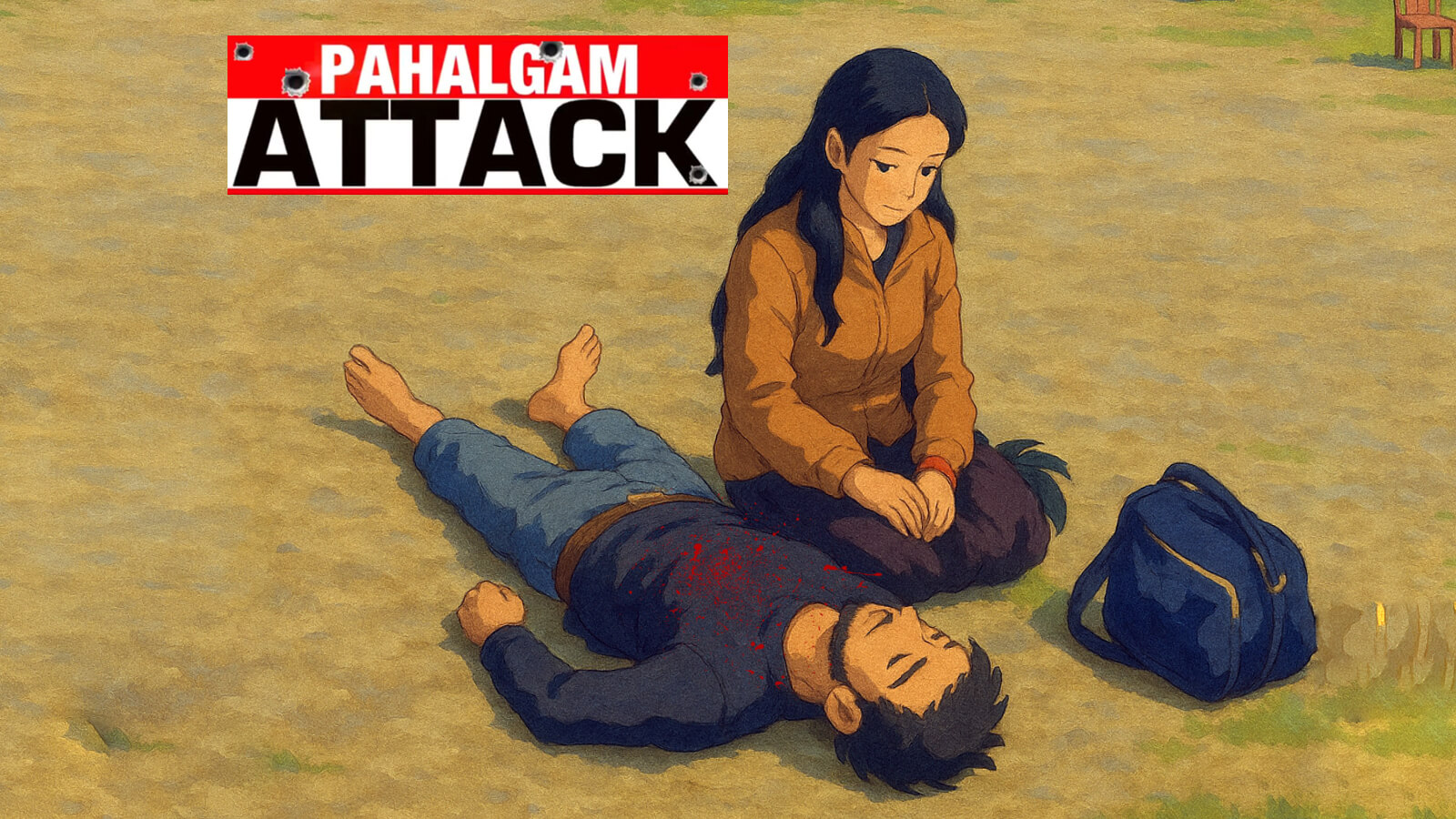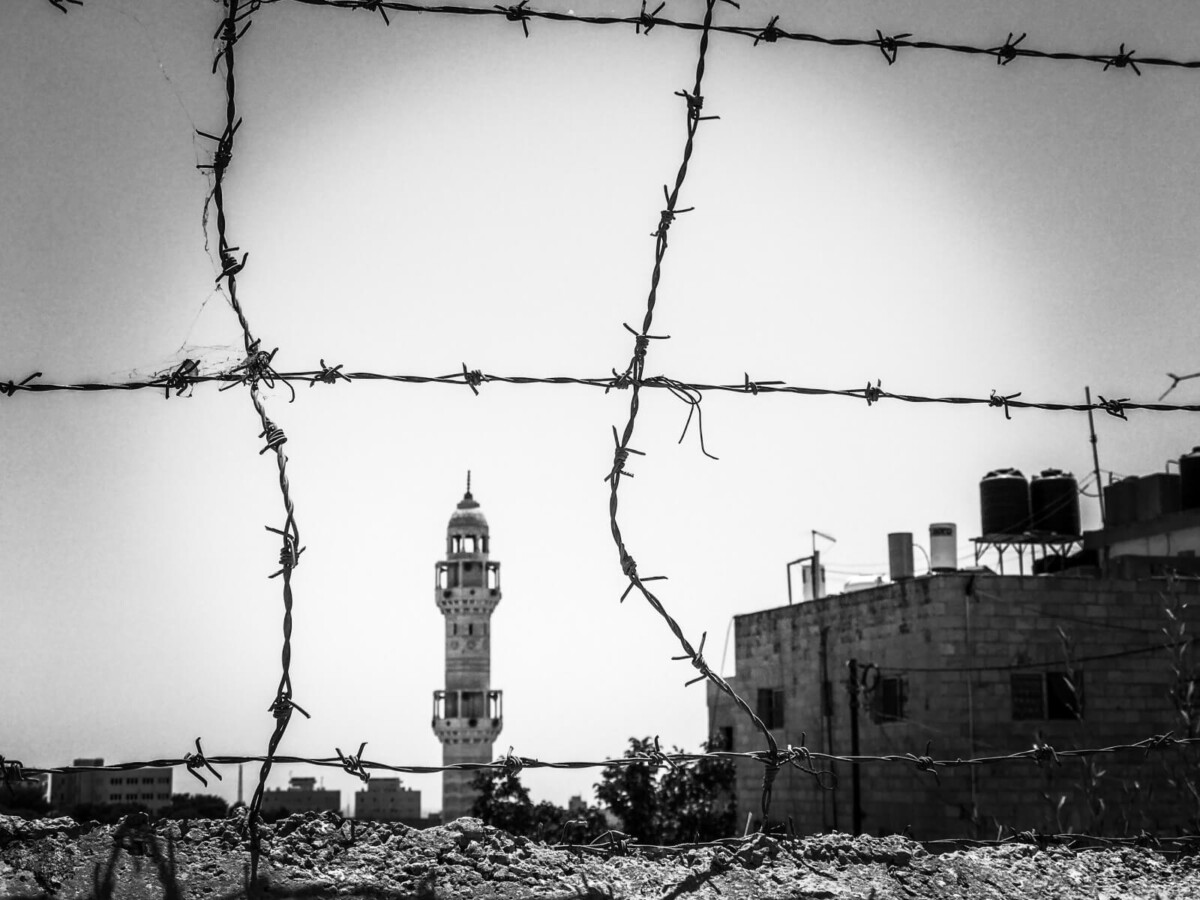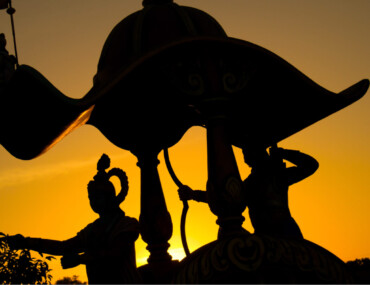When the Valley Weeps: A Reflection on the Recent Terror Attack in Pahalgam
(Based on the live discourse of Param Dwij)
(परम द्विज के प्रवचन पर आधारित)

In certain corners of the world, the breathtaking beauty of nature evokes a deep sense of spirituality, peace and calm whenever you visit. Pahalgam is undoubtedly one of those serene places. This captivating town, which is tucked away in the scenic valleys of the Indian Himalayas, offers breathtaking views of snow-capped peaks, lush meadows, and the serene Lidder River. One can genuinely connect with the divine in this setting because of the tranquil surroundings and the simplicity of country living. Here, every sunrise feels like a blessing, and the crisp mountain air carries whispers of tranquillity, making it easy to believe that the Earth is indeed close to God.
Pahalgam has always been more than a destination. Tucked in the heart of Kashmir, where the Lidder River sings lullabies to the mountains and pine trees whisper ancient prayers, it is a haven for the soul, a hallowed place where poets and pilgrims have gone to find peace, quiet, and purpose. However, sanctity is not impervious to pain. Once resonating with devotion, the valley shook with gunfire and screams on that fateful day when terror overtook this quiet town.
Even today, as the blood dries from the valley where tragedy struck and the relentless news cycle shifts its focus to the following headline, the very soul and heart of our nation continues to weep in mourning. The echoes of this deep loss linger in the hearts of all those affected, giving us a reminder of the fragility of peace and the deep scars that these events leave behind for decades to come. The stories of all the lives shattered, taken, and communities torn apart resonate in the silence, urging us to remember the profound impact of what has just occurred, far beyond the fleeting attention of media coverage.
A Wound Deeper Than Headlines
The attack in Pahalgam was not just another violent incident—it was a desecration of peace. A cowardly act that targeted not just lives but our collective faith in humanity. Innocent people—pilgrims, drivers, soldiers—were caught in a moment of darkness that none of them invited, none of them deserved.
We mourn them not just as victims of a tragedy but as sacred threads torn from the very fabric of our nation’s heart. They were all members of our family, friends, and neighbours, so none of them were strangers. Their lives were entwined with ours, reflecting our everyday struggles, aspirations, and hopes. Their lives mattered as much as ours does. They embodied the spirit that binds us together and were a part of our community. They were us and still exist deep within us, serving as a constant reminder of both the frailty of life and the resilience of our shared humanity. Although their absence leaves a huge void, their memories will live on forever, inspiring us to value one another and work toward a more compassionate and better world.
Terrorism is the Absence of Dharma
In Indian philosophy, there is a powerful word—Dharma. It means more than religion or duty. It is the law of righteousness, the path of truth, the rhythm of the cosmos. Terrorism is, by its very nature, a violent rejection of Dharma. It thrives where there is ignorance, where ego eclipses empathy, and where division replaces devotion.

No scripture in any faith justifies the murder of the innocent. No God ever smiles at the sound of gunfire.
When a terrorist takes a life, they are not just killing a body—they are severing themselves from the divine thread that binds all creation. They are attacking the sacred law that says, “Vasudhaiva Kutumbakam”—the world is one family.
When the Land of Shiva is Shaken by Violence
Pahalgam lies on the path of the Amarnath Yatra, a pilgrimage that celebrates Lord Shiva’s timeless truth. Devotees from across India walk this path not to claim territory but to surrender their egos. The journey to Amarnath is not just through mountains; it is inward—towards humility, silence, and surrender.
To attack pilgrims is to attack the spirit of surrender. It is to shoot not at bodies but at faith. Yet, as history has shown time and again, faith does not die with bullets. It may be wounded. It may cry. But it always returns—stronger, deeper, and more united.
The Spiritual Pain of Loss
There’s a reason every religion includes mourning rituals. Whether it’s lighting a candle, chanting a prayer, or observing silence, we instinctively know that grief needs reverence. In times like these, we must not rush to move on. We must sit with our sorrow, feel it, and honour it.
Because behind every death in Pahalgam was a name, a face, a story. A parent waiting at home. A prayer half-whispered. A dream that will never be fulfilled.
When we acknowledge this pain, not just with slogans but with silence, we elevate our response from reaction to reflection. That is spirituality in action.
What Can We Do? A Spiritual Call to Action
We may not wear uniforms or patrol borders, but that does not mean we are powerless. In spiritual life, even the smallest act done with awareness becomes sacred. Here’s what we can all do:
1. Light a diya—not just in temples, but in your heart.
Let it burn with compassion, not hatred. Let it remind you that every life lost deserves remembrance, not retaliation.
2. Choose love over labels.
Terrorism wants us to hate. It wants us to look at someone’s name, religion, or region and see the “enemy.” Don’t fall into that trap. Every time you refuse to generalize, you weaken the grip of fear.
3. Educate the next generation in empathy, not just academics.
Teach children about unity, about the shared soul of all beings, and to question violence—not just on the streets but in their words and actions.
4. Support peacekeepers.
Our soldiers and police forces are not just defenders of borders but of harmony. A word of gratitude, a message of support, a prayer in their name matters.
5. Return to stillness.
In a world that wants us to react instantly, choose reflection. Meditate, pray, walk in nature, and connect with your inner self. A calm mind is a powerful shield against chaos.
Let Not Our Response Become a Mirror of Hatred
It is easy to feel rage. To demand revenge. But as Lord Buddha said, “Hatred does not cease by hatred, but only by love; this is the eternal rule.”
Our spirituality is not a weakness but the strength of the highest order. It is the courage to respond with dignity, the wisdom to see beyond immediate pain, and the faith to believe that light will outlast the night.
From Grief to Grace
The real tribute to those who died in Pahalgam is not just mourning them—it is becoming more human because of them—more aware, more united, and more devoted to peace, not just in words but in our choices.
Let every step we take be a prayer. Let every breath be a vow—to protect life, to uphold Dharma, and to never let fear divide what love can hold together.
Let’s End with a Prayer
“Sarve Bhavantu Sukhinah, Sarve Santu Niramayah
Sarve Bhadrani Pashyantu, Ma Kashchit Dukha Bhag Bhavet.”
“May all beings be happy, may all be free from illness.
May all see what is auspicious, may no one suffer in this world.”
Pahalgam may bleed today, but it still stands. And so must we. Not with anger but with awakened hearts. Because terror may shake the land—but our soul is unshakable.



